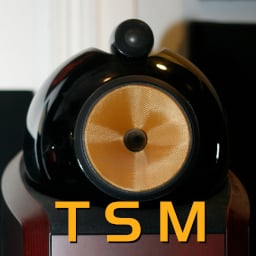Unihertz and Oukitel both make “rugged” phone models with giant batteries - aimed at weekend campers with giant hands. And Fairphone and Volla both have phones that still allow for easy battery swapping.
audio mastering engineer at Total Sonic Media - https://totalsonic.net
- 0 Posts
- 28 Comments

 3·5 months ago
3·5 months agoThat’s exactly what grows out wild in my backyard here (which is against the edge of a greenbelt / drainage creek bed) - no intervention needed.

 14·5 months ago
14·5 months agoYou could do what I did:
- only buy a house in a place that has no HOA
- xeriscape the front, let most of the back just grow out wild, and keep a small patch of grass in an area where you like to chill (for me this is in a courtyard)
- use an old school push mower for this small patch. You get a little exercise with this, but not enough to ever stress ya, and it requires no gas, no oil, no electricity and barely ever any maintenance.

 2·7 months ago
2·7 months agoHave close to zero clue wtf is going on in that video, but it had me engaged the whole time. Slammin’ track - thanks for posting this.
My old man pet peeve: the plural of “vinyl” is “vinyl.” They are “records” or “LPs” - not “vinyls”. Now get off of my LAN! ;)
It’s not out yet, but there is a kickstarter from German company Volla, coming in the next few days for a 12" tablet running a Mediatek soc that will be capable of running Ubuntu Touch - for which you can use UT native apps, webapps, some Linux desktop apps via their “Libertine” container, and some Android apps via “Waydroid.” And Volla has an excellent track record of delivering on their product promises - in contrast to Purism.

 0·8 months ago
0·8 months agoEdge is better if you are wanting to always have your data mined by Microsoft, for sure.

 52·8 months ago
52·8 months agoAll I know is I received so many daily texts and emails from her campaign begging for money that it seriously turned me off, and I don’t even live in CA.

 0·8 months ago
0·8 months ago24bit 96kHz FLAC (purchased from Bandcamp & HDTracks) -> JRiver Media Center software player -> Merging Anubis Pro DAC -> Coleman Audio M3PHmk2 passive monitor controller -> Pass Labs X250 class A solid state power amp -> B&W Nautilus 802 3-way floor standing speakers
Or if from vinyl KAB modded Technics SL1200mk2 -> Shure V-15MR cartridge -> Simaudio Moon LP5.3 balanced preamp ->
(in 20’ x 14’ x 9’ room with bass traps, absorbers and diffusors by GIK, ATS, and Auralex)
As far as tablet usage goes - with Ubuntu 23.10 running the latest “Surface Linux” kernel on my Surface Go gen 1, Wayland is finally buttery smooth. Screen rotation with Wayland is near instant, where as on xorg takes a couple seconds.
I can’t say the same for my dual boot desktop that has an Nvidia 1050ti in it going to a 55" tv monitor via HDMI though - had to hook up a second monitor from dvi just to be able to login - which was not the case on Xorg.
Oh well, baby steps, but Wayland is definitely growing up fast and getting closer to being daily dtiver ready for nearly all use cases.

 4·8 months ago
4·8 months agoHerman Miller Aeron. Tested reliable and proven.
Obviously floating point is of huge benefit for many audio dsp calculations, from my observations (non-programmer, just long time DAW user, from back in the day when fixed point with relatively low accumulators was often what we had to work with, versus now when 64bit floating point for processing happens more as the rule) - e.g. fixed point equalizers can potentially lead to dc offset in the results. I don’t think peeps would be getting as close to modeling non-linear behavior of analog processors with just fixed point math either.

 2·9 months ago
2·9 months agoYes, while you can still do 3g/2g phone calling in most of Europe, the only hold out in the US for this is that T-mobile still has 2g calling in some areas, but they have announced that this will be shut down sometime in the soonish future (it was scheduled to be all shutdown of April this year, but they announced this was delayed to a time tbd, likely in order to continue to serve all the ATM’s and iot devices that are still running “legacy” systems being used beyond supposed eol). Which is why I reverted to using de-googled AOSP for my daily driver - I like to be able to use my phone as a phone after all.

 3·9 months ago
3·9 months agoDalton is an amazing and very cool guy, and when he left it was indeed a big hit to dev speed at first, but recently a few super smart and dedicated guys have been able to do a big jump in updating the base from 16.04 to 20.04 (which involved moving from upstart to systemd) and they are getting close to rebasing to 24.04 (target for this is this June in fact). Plus Waydroid support has gotten really good in the time since Dalton moved on, and snap support is getting worked on now as well.

 6·9 months ago
6·9 months agoI am talking about VoLTE (Voice over LTE) which is the protocol just for making phone calls over 4g networks - NOT 4g/LTE mobile data! Ubuntu Touch has worked well with 4g/LTE mobile data for 10 years now.

 102·9 months ago
102·9 months agoAndroid devices run deprecated Linux kernels that have a bunch of proprietary binary blobs plopped onto them, so technically “Linux”, but not an easily updateable mainline kernel like most people are referring to when talking about “Linux.”

 15·9 months ago
15·9 months agoBetween October 2018 to April 2023 I used as my daily drivers a series of phones (OnePlus One, Meizu Pro 5, Volla Phone, Xiaomi Redmi Note 9 Pro) all flashed to running Ubuntu Touch. During this time UT (Ubuntu Touch) was less developed than it is now, in that Waydroid (which allows using some Android apps over a Lineage OS container that boots on top of UT) did not yet exist, and Libertine (which allows some Linux desktop apps built for Ubuntu arm64 deb to be installed) was not as functional. And yet is still worked great for my modest needs (e.g. I don’t do banking, or any kind of more advanced gaming, on my phones).
The reason I reverted last year to de-googled Android (“vanilla” Bliss ROM on a Xiaomi Redmi Note 10 Pro) is that being in the USA, the carriers here have closed or are closing down all their 3G/2G networks, and requiring VoLTE for phone calls. While UT supports LTE for mobile data without a problem, given that VoLTE is a proprietary closed protocol with implementation varying between carrier, oem and device, the only device which UT currently has VoLTE support for (and which is still shaky) is the PinePhone Pro.
Anyhoo - the UT dev community is pretty small, but definitely dedicated, and still offers some promise into the future for a nice privacy respecting alternative OS for mobile devices and tablets. Hopefully at some point VoLTE, and a few other issues gets figured out for it so I can return to using it for my daily driver - in the meantime I’ve got it on a OnePlus 5t as a secondary device, and on a Lenovo x306f 10" tablet.

 7·9 months ago
7·9 months agoYes, Chromium, from which Chrome places proprietary parts on top of, is an open source project, so anyone can fork it and remove telemetry and tracking. Most browsers are in fact forks of Chromium - e.g. Edge (which replaces Google’s trackers with Microsoft’s own), Opera (which puts in trackers going back to a Chinese corporation), Vivaldi (which doesn’t seem to do tracking but has proprietary parts so is not verifiable) - or, on the privacy respecting side Brave (which is all open source and doesn’t track you once you click opting out on its reporting back to Brave and crypto rewards stuff), Ungoogled Chromium (which tends not to be updated all that quickly) and a few others.

 13·9 months ago
13·9 months agoThe Librewolf project is up to date Firefox core with some hardening and the telemetry going back to Mozilla removed - good stuff.


Yeah, software support tends to be pretty bad for their devices, with few updates, and they are often bad with posting kernel source for their devices, so hard to get custom roms or flash alternative OS’s on them too. But if you want a phone that has a battery that can last 3 days straight - they are indeed available for purchase